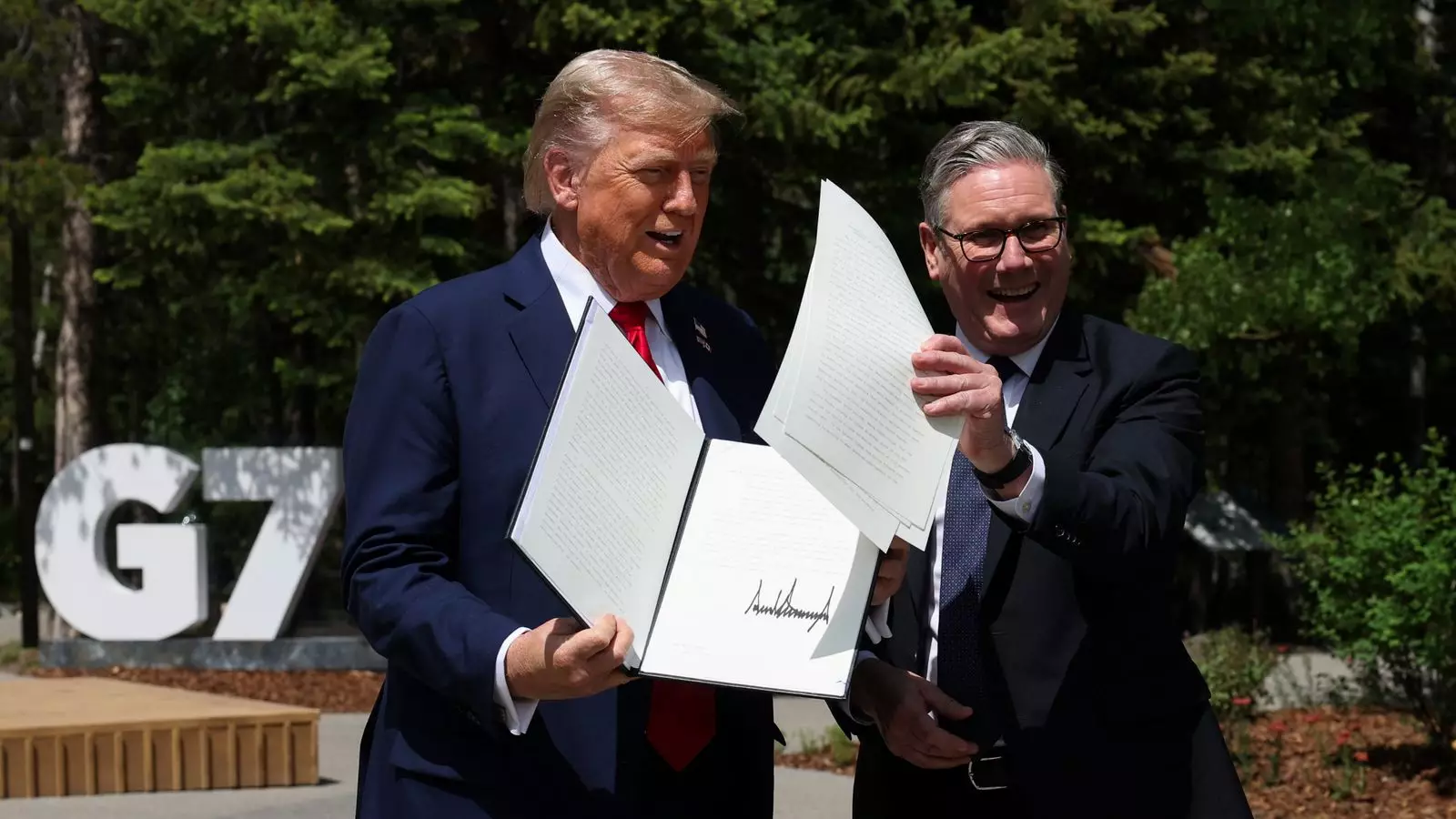The recent signing of the UK-US trade deal heralded by President Donald Trump may sound like a monumental victory, but let’s pierce through the surface of this supposed “done deal.” While both leaders, Trump and UK Prime Minister Sir Keir Starmer, deemed it a significant advancement that would create jobs and boost income, I can’t help but sense an undercurrent of disillusionment wrapped in their grand proclamations. The lofty promises made mustn’t eclipse the complexities and uncertainties that often accompany international trade agreements.
It is reminiscent of an overzealous celebration of a sports win, where the team is parading on the field, yet the scoreboard reveals a much tighter game. For the citizens of the UK, the question remains whether this deal genuinely secures their economic future or if it is merely window dressing, designed to curry favor in the political arena.
Simplistic Narratives in Complex Matters
The recurring theme of “fairness” touted by the leaders seems almost disingenuous when set against the backdrop of rampant economic inequality and intense pressures on working-class families. The economic landscape is not as black and white as the deal implies. A trade agreement, when embraced with the mantra of “we’re very longtime partners and allies,” can mask the uncomfortable truth: many livelihoods are on the line in both nations.
While Sir Keir Starmer has embraced this trade agreement as a triumph, how can we overlook that for a deal to be truly beneficial, all parties must be protected equally? The talk of levies and tariffs remains cloaked in uncertainty, especially regarding British steel exports. When Trump coyly remarked, “we’re gonna let you have that information in a little while,” it could easily be interpreted as political maneuvering at its best—or perhaps worst.
The Pitfalls of Political Flattery
The facade of camaraderie appears to be a handy tool for both leaders. Trump’s somewhat backhanded compliment to the Prime Minister—calling him “slightly more liberal than me”—is a curious blend of flattery and political theater. Such comments, while they may solidify their rapport, disregard the essence of what both liberalism and partnership should signify: accountability and transparency.
These interactions, laden with superficial platitudes, overshadow the realities that creeping protectionism and trade wars pose to working-class citizens in rich nations. The current political climate—predominantly shaped by leaders like Trump, who have previously shown a penchant for isolationist policies—creates anxiety rather than assurance.
A Cautionary Tone on Global Trade
The crux of the issue may lie in the loose threads of the agreement that are yet to be stitched together. It’s all too easy to point to an agreement signed in a picturesque summit, but beneath the seemingly rosy rhetoric lies a plethora of concerns. As the UK navigates the intricate waters of post-Brexit trade relations, the ramifications of this deal on various sectors are uncertain.
There’s a gritty reality that needs to be acknowledged: trade deals are often riddled with hidden clauses and triggered tariffs that can leave some industries—such as the agricultural sector—struggling under the weight of global competition. If history has taught us anything, it’s that haste often leads to mistakes, and citizens should be wary of political leaders that promise a prosperity without a transparent framework to achieve it.
Caution is Key
While the announcement of a trade deal between the UK and United States may appear to be a significant step forward, it’s essential to scrutinize the intricacies of what’s laid out before us. As the world becomes more interconnected, let us demand clarity and fairness over grand proclamations. In this time of uncertainty, citizens must keep a watchful eye on these complex negotiations and ensure that the real powers of trade do not function merely as political pawns in a game of bravado.
Misplaced optimism may lead us down a treacherous path, one where the interests of everyday people are overlooked in favor of political expedience. It’s time we call for accountability in trade agreements, urging our leaders to prioritize those who stand to gain or lose the most. Let’s ensure that economic alliances elevate our democratic principles rather than erode them.


Leave a Reply